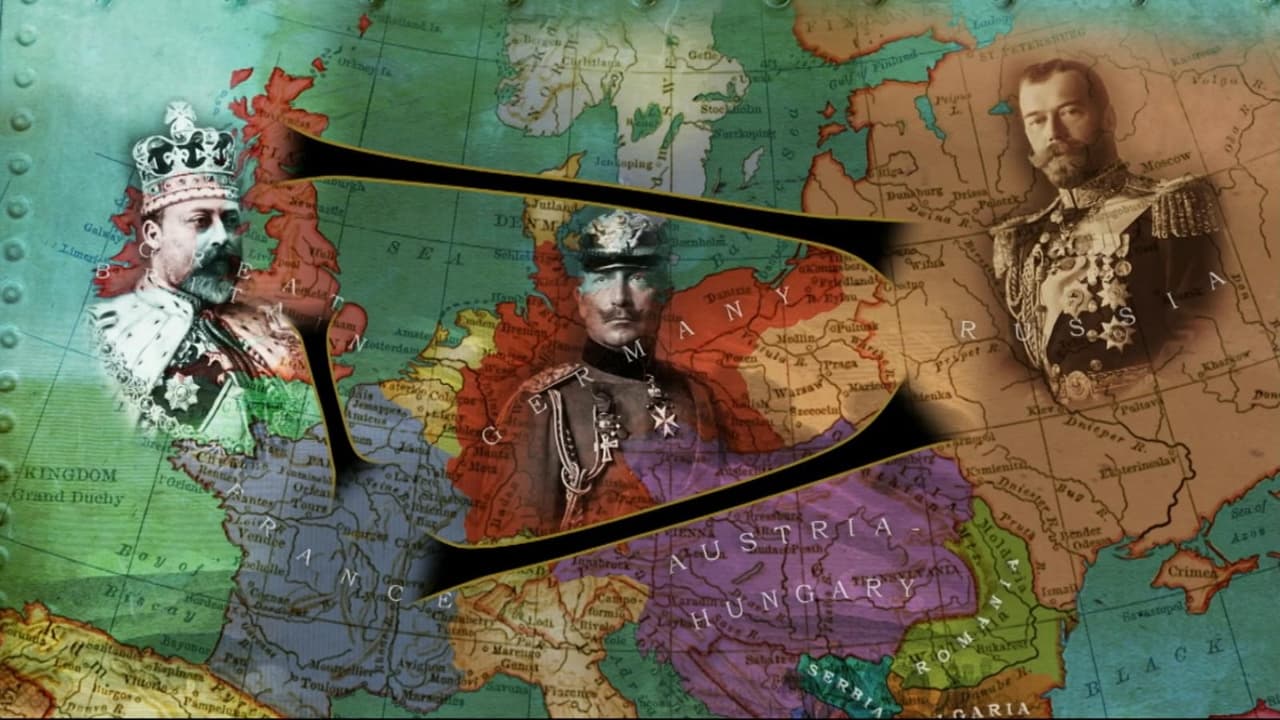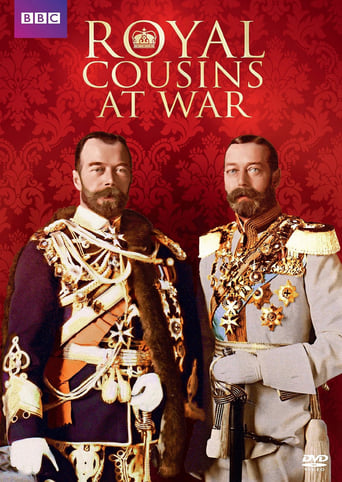



Best movie ever!
Absolutely Fantastic
The movie is made so realistic it has a lot of that WoW feeling at the right moments and never tooo over the top. the suspense is done so well and the emotion is felt. Very well put together with the music and all.
View MoreOne of the most extraordinary films you will see this year. Take that as you want.
View MoreThis is an excellent two-part documentary focusing on three Royal cousins, all grandchildren of Queen Victoria: King George V, Tsar Nicholas II, and Kaiser Wilhelm II. These three men became monarchs of three major European powers, Great Britain, Russia and Germany and ruled their respective countries at the start of World War I. The personal histories of these men show how their strengths and weaknesses had a tremendous impact on their nations during the war and affected the lead-up to that war and its outcome. We hear from several eminent historians about the characters and personalities of the three men and their families. One participant, Margaret MacMillan, a Canadian who teaches at the University of Toronto, wrote at least two books on that war and as always, provides insightful commentary. Jane Ridley, a biographer of Edward VII, Prof. John Rohl, a biographer of Wilhelm II, and Miranda Carter also make appearances. We see the a detailed portrait of Kaiser Wilhelm's childhood, including his breach birth which left his left arm impaired. At the time, this condition would have been a tremendous blow to an heir to the throne. We do not know that this was the cause of his erratic behaviour, which further isolated him from his family and resulted in a Kaiser who had a bizarre sense of humour that demeaned and insulted his own subjects. However, his belligerence as well as his overbearing personality leave little wonder that Germany abolished the Royal House of Hohenzollern. We also learn about Victoria's daughter Vicky, the Princess Royal, who became the wife of the heir (a reign lasting only three months before he died) and the mother of Kaiser Wilhelm. The Royal Family in Britain hoped she would soften the militarism of German society and point Germany towards a more liberal democracy. At the time, Germany and Britain were bound together by strong ties between both Royal Houses. Queen Victoria herself spoke German and was a member of a family related to both countries through the House of Hanover, not to mention her marriage to Prince Albert, also a German.This seemed to be a natural alliance. However, the two countries were quite different. George V and Tsar Nicholas bore a remarkable resemblance because their mothers were sisters, two Danish princesses. They were very close and spent summers together with families at the summer residence near Copenhagen. It is not surprising that George was greatly grieved by the assassination of his cousin the Tsar and his family. However, he did not take action to avoid it by offering them asylum. The film footage and photographs are very good quality considering that many date to the 1860's; no doubt due to some digital restoration. One film clip shows the future Tsar walking alongside Queen Victoria's carriage in 1887, the year of her Golden Jubilee. Another shows King Edward VII and the future George V on horseback at the time of Queen Victoria's funeral in 1901. Monarchies in Germany and Russia ended after the war. George V in Britain went on to redefine the role of the constitutional monarch with a bond between monarch and people, not just state figurehead. This shift has gone a long way to re-define the British monarchy since that time. As we know, Germany and Russia evolved quite differently. This is a fine piece of film-making giving an overlooked view of family linkages that contributed to the Great War 100 years ago and would profoundly shape the 20th century.
View More